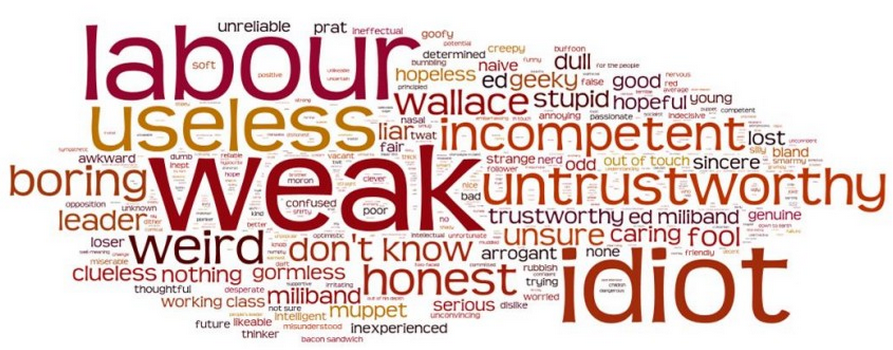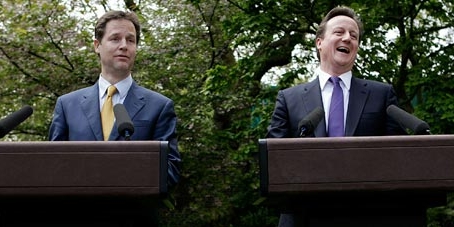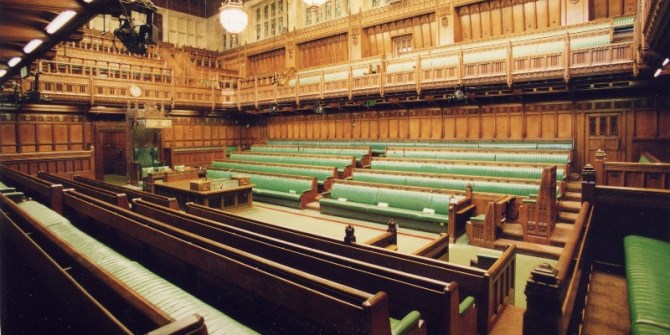 Polling Matters is an independent, non-partisan podcast providing expert polling news and analysis, with guests, in the run up to the General Election. In the most recent episode, Keiran talks Ed Miliband with Tim Bale of Queen Mary University, author of the book ‘5 year mission. The Labour Party under Ed Miliband’. We discussed Miliband’s leadership of the Labour Party, comparisons with his brother and his chances of becoming Prime Minister in May.
Polling Matters is an independent, non-partisan podcast providing expert polling news and analysis, with guests, in the run up to the General Election. In the most recent episode, Keiran talks Ed Miliband with Tim Bale of Queen Mary University, author of the book ‘5 year mission. The Labour Party under Ed Miliband’. We discussed Miliband’s leadership of the Labour Party, comparisons with his brother and his chances of becoming Prime Minister in May.
You can listen to this week’s polling matters podcast here.
Assessing Ed Miliband’s leadership of the Labour Party is difficult. On the one hand, he has struggled badly to connect with the British public and consistently lags behind David Cameron when they are asked who would make the best Prime Minister. On the other hand, he has kept the Labour Party (and the ‘Left’ in general) remarkably united since defeat in 2010 and can credibly win the next election if the current polling trend of the two main parties being neck and neck holds. That, of course, is a big ‘if’. Nevertheless, given the scale of Labour’s defeat in 2010, being competitive at all right now is no mean feat.
Miliband struggles to connect
Whichever view you take, a key theme of Miliband’s leadership to-date has been his struggle to connect with the voters. As Tim Bale argues on this week’s podcast, this has been the case since his leadership began. According to YouGov, David Cameron enjoyed double-digit leads on who would make the best Prime Minister in 2010 and this hasn’t really changed since. In addition, a recent ComRes poll showed the Labour Party achieving higher favourability ratings than Miliband himself, suggesting he is a drag on the Labour vote.
Most interesting of all is the imagery associated with the man. When asked which words voters’ associate with the Labour leader several unflattering suggestions come up including ‘weird’ and ‘weak’. Of these I think ‘weak’ is the most problematic as voters assess which party leader is most up to the job of being Prime Minister.
Word association with Ed Miliband (Source: ComRes / Daily Mail)
The idea that Miliband is ‘weak’ hardly seems fair. It certainly doesn’t tally with a man who took on his brother for the Labour leadership and then the unions and the ‘Murdoch press’ during it. However, perception in politics is usually more important than reality, what is ‘fair’ rarely matters. Perceptions of weakness are something Miliband needs to address and he knows it, hence the ‘Hell yes, I’m tough enough’ line last during last Thursday’s ‘debate’.
Uniting the ‘Left’
Given the weakness in the public’s perception of Miliband, it is perhaps remarkable that Labour remain in such a strong position as the election approaches. Part of their strength lies in an inbuilt bias in the system that converts Labour votes to seats more easily than the Conservatives and they also benefit from having more parties in parliament willing to do a deal with them in the event of a hung parliament. However, Miliband’s leadership of Labour has also been crucial in ensuring they are competitive at this election in terms of vote share, without which the first two points matter little.
Miliband’s great achievement has been to keep the Labour Party united after defeat in 2010 and to build a relatively solid (until now at least) ‘coalition of the left’ in terms of support. One in three 2010 Lib Dem voters consistently tell pollsters they will vote Labour this time and the ‘Green surge’ seems to have been temporary at best.
It is this current composition of Labour support that explains why the party is so keen to promote ‘leftist’ policies like a cut in tuition fees or the ‘Mansion tax’ and is less keen to be too explicit on where the axe might fall in terms of spending cuts. Keeping the ‘Left’ united behind Miliband is vital to Labour’s prospects in May and too much detail on ‘tough decisions’ regarding spending could make this more difficult to achieve. We are entitled to be sceptical about how well such a coalition of support holds during a minority Labour government when the reality of tough spending decisions bites but that is for another day.
Can Miliband win?
But can Miliband really win with this coalition of the left? Current polling is ambiguous. Labour supporters had hoped that Miliband’s positive performance at last Thursday’s ‘debate’ had created some momentum. Indeed, this weekend’s YouGov poll for the Sunday Times appeared to show as much with a post-debate bounce for Labour giving the party a 4 point lead alongside improved personal ratings for Miliband. However, we should always be wary of reading too much into individual polls and events. There can be no greater example of this than the latest ComRes poll for the Daily Mail showing no such bounce and the Conservatives 4 points ahead. Little appears to have changed. The election is too close to call, especially when we consider the fact that the translation of votes to seats is very difficult to project in this era of multi-party politics.
Miliband the (slight) favourite in an election up for grabs
As we approach polling day, Miliband remains slight favourite to lead a government until there is a decisive movement in the polls towards the Conservatives. There is no obvious sign of this yet and the Conservative campaign so far has been beset with set-backs such as Cameron announcing his intention not to seek a third term.
However all is up for grabs. It is entirely possible the voters will swing late to the Conservatives based on Cameron’s personal lead over Ed Miliband and public fear over Labour spending plans (it has happened before). The crucial factor in this race will be whether or not Ed Miliband’s poor poll ratings are already ‘priced in’ to current polling. If they are, the chances are his ‘coalition of the left’ can hold and he will lead the largest party in May. If they are not, the Conservatives will have a chance to take the 3-4 point lead nationally that they need to have any chance of forming a government.
When all is said and done, it will be on this that Ed Miliband’s leadership is judged. If he fails, critics will argue his candidacy was flawed and his failure to spell out tough spending decisions was wrong. If he succeeds, he will have rewritten the conventional ‘rules’ of elections that personal leadership and economic competence ratings are key and you must run to the ‘centre ground’ not the ‘base’. In such a complex parliamentary system, it is hard to say which is right. I suspect normal rules will prevail but I wouldn’t put money on it.
 Keiran Pedley is an Associate Director at GfK NOP and presenter of the podcast ‘Polling Matters’. He tweets about politics and polling at @keiranpedley.
Keiran Pedley is an Associate Director at GfK NOP and presenter of the podcast ‘Polling Matters’. He tweets about politics and polling at @keiranpedley.







